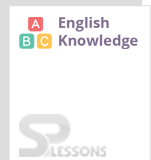 Introduction
Introduction
Sentence Improvement is one of the most crucial topics in several competitive exams including Management Entrance exams & Recruitment exams in India. On average, 5-10 questions of Sentence Improvement appear in the examinations. Substantial knowledge of English Grammar Rules & Vocabulary will facilitate in acing the Sentence Improvement Questions. Sentence Improvement Practice Quiz Set 2 will facilitate the students understanding of the topic.
For Sentence Improvement questions, students have to look for grammatically correct & error free alternative. If the given sentence is correct as it is, the test taker has to choose "No Correction Required" option. Primarily, these are error detection questions.
 Quiz
Quiz
1. A student was arrested for displaying an indecently art work in public.
The underlined part 'indecently', which is an adverb, hence must be replaced with the adjective 'indecent' to make it a grammatically correct sentence.
2. He did not like me to smoking in the presence of our teacher yesterday.
As per the basic usage rules, 'like' is one of the verbs which are followed by a gerund e.g. swimming, dancing or traveling, etc.
Since the gerund is a noun, it is logical to find it preceded by a possessive pronoun (his, her, your, my, our, etc) or a noun in the possessive form (Rohan's, Mr. Sharma's, etc).
3. The government has granted permission to prosecutegranted permission to prosecute the public servant.
The underlined part 'a dramatic improved' hence must be replaced with 'a dramatically improved' to make it a grammatically correct sentence.
- A. indecent
B. unindecently
C. the indecently
D. any of indecently
E. No correction required
- A. that I smoke
B. my smoking
C. me smoking
D. smoking by me
E. No correction required
- A. granted permission to prosecution
B. sanction to prosecuting
C. sanctioned permission to prosecute
D. grant permission to prosecute
E. No correction required
- A. quite picturesque and enjoyable
B. quite picturesque and enjoyed
C. quietly picturesque and enjoyed
D. quietly picturesque and enjoyable
E. No correction required
- A. the dramatic improved
B. the dramatically improved
C. a dramatically improved
D. a dramatic improvement
E.
1. Considering the high demand for flights to Gulf countries airlines, can risen prices.
The underlined part 'can risen', therefore, must be replaced with 'may rise' to make it a grammatically correct sentence.
2. Without both issue is clarified the board will keep all other matters before it pending.
Second, as 'both' suggests 'two', the noun that is followed by it must be in plural form.
The correct formation will be - "Unless both issues are clarified, the board will keep all other matters before it pending. </li
3. The incident has clearly highlighted his knowledge and attentive of detail.
And at the same time, it's more appropriate and common to use 'to' after 'attention' and not 'of'. The correct formation, hence, will be- The incident has clearly highlighted his knowledge and attention to detail.
4. The bank’s accumulated losses have come up for manageable levels this year.
Ex. She came up for re-election in June.
Hence, the use of 'come up for' in the given context is erroneous. While, 'come to', which means 'to attain, achieve or reach something', will be an appropriate choice to make the sentence correct.
5. Improving the educational system, which is one of the worst in the world, requires commitment from the country’s politicians.
- A. should rise
B. could raised
C. may raise
D. will raise up
E. No correction required
- A. Unless both issues are
B. Until each issue were
C. Without the issue being
D. Since both issues
E. No correction required
- A. attended to detail
B. attentively on details
C. attention to detail
D. attention for detail
E. No correction required
- A. come to
B. came into
C. coming from
D. came within
E. No correction required
- A. among the worse
B. one of the worse
C. become the worse
D. from the worst
E. No correction required
1. In quick time she got acquainted with the new environment.
Other similar examples:
- A. In enough time
B. In small time
C. On time only
D. in no time
E. No correction required
- A. will be able to
B. should be able to
C. would be able to
D. be able
E. No correction required
-
Ex. He came at 8: 30 pm, freshened up and sat (not sit) by the window with his favorite novel.
Ex. It was obvious that he smoked (not smoke) in nobody's presence.
Ex. He said he would (not will) go to Lucknow on Friday.
- A. hated doing
B. hate does
C. hates do
D. hates doing
E. No correction required
- A. as she knows
B. as she was knowing
C. as she knew
D. as she knowing
E. No correction required
- A. could not think
B. cannot thinking
C. cannot think
D. could not thinks
E. No correction required





